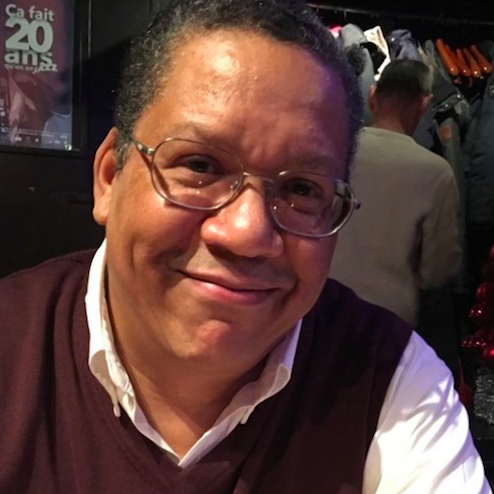
A trolley car on Main Street in downtown Memphis, Tennessee
Profits for the high-cost lenders who offer so-called payday loans, car title loans or flex loans overwhelmingly depend upon targeting communities of color and stripping them of their wealth, concluded a recent report on predatory lending released by the HOPE Policy Institute and the Black Clergy Collaborative of Memphis (BCCM).
According to the HOPE-BCCM report, there are currently 114 high-cost lending storefronts in Memphis, or more than twice the number of McDonald’s and Starbucks in the city combined. These storefronts are disproportionately located in Memphis neighborhoods with higher percentages of Black and Latino residents.
“These lenders prey on people who already face extraordinary financial challenges and knowingly overwhelm them with exorbitant rates and terms, creating a cycle of financial instability and poverty,” HOPE CEO Bill Bynum said in a public statement. “America’s future prosperity requires a fair and responsible financial system that increases, not inhibits economic mobility.”
Predatory lenders, say the report’s authors, hoover millions of dollars from poor communities across the nation, and in the case of Memphis most of that money leaves the state of Tennessee as well. Seventy-four of the 114 of the high-cost lenders storefronts are owned by out-of-state companies, according to the HOPE-BCCM report, and just two of these companies have 52 storefronts between them.
In Memphis, 20 percent of white households lack liquid assets, compared to more than 50 percent of Black households and more than 60 percent of Latino households in the Bluff City. These high-cost loans, through their fee extraction and economic consequences primarily concentrated in the city’s Black and Latino communities, perpetuate this gap, limit economic mobility for individuals and maintain long-standing racial and economic inequalities, the HOPE-BCCM report added.
People who live outside of these communities do not fully understand the impact of high-cost predatory lending, Bynum told TriplePundit.
“When people see these storefronts clustered on thoroughfares in certain neighborhoods, it might look like they are there to offer a convenient service, or they might generally know that the loans are probably a little bit expensive,” Bynum told 3p. “What most people likely don’t realize is just how expensive they are, such as interest rates over 400 percent, which is almost hard to be believe, but it’s true.”
Being trapped in a cycle of high-cost debt is also devastating to the physical and emotional health of these communities, said Reverend Darell Harrington, senior pastor of New Sardis Baptist Church and chair of the BCCM economic empowerment committee. Harrington told 3p that pastors and faith leaders in Memphis see predatory lending “as a purely evil element that continues to eliminate a sense of freedom and equality for those entrapped.”
“Victims of predatory lending often suffer in silence, compounding external frustration and agony, with internal fear and affliction,” said Harrington. “The stress factors and the mental duress caused by these exploitative products further exacerbate the injustices that are prevalent, primarily in underserved areas.”
The HOPE-BCCM report acknowledges the steps local government has taken to address predatory lending as well as its limited options, calls for more action from both the state and federal governments.
“State law of Tennessee currently allows lenders to charge over 400 percent. The legislature has the authority to change this, to prevent these predatory, high-cost loans which are most often aimed at people already struggling to make ends meet,” Bynum told 3p. “Lowering the costs of these loans, just like many other states have done with bipartisan support, is a common-sense step to ensuring the economic security of Tennesseans.”
Congress has the power to lower the costs of these loans nationally, Bynum said, and doing so would extend protections already in place for active-duty military personnel, which caps the rates of these loans to no more than 36 percent annually.
Congress took this action, with bipartisan support, because the “Department of Defense determined that 300 to 400 percent rate loans undermined military readiness,” said Bynum. The Veterans and Consumer Credit Fairness Act, which was introduced in November 2021, extend this protection of a 36 percent rate cap for everyone, he said. Beyond Congress, Bynum said the Consumer Financial Protection Bureau also has the authority “to take action to prevent predatory lenders from trapping people in a perpetual cycle of debt as they do now.”
“The best way to address the harms of the debt trap of 400 percent loans, is to address that directly. Doing so will require action by our policy makers at the state and federal level,” Bynum added. “The private sector can and should be a supportive voice in calling for these changes to address these practices which are so harmful to our communities.”
Image credit: Joshua J. Cotton via Unsplash

Gary E. Frank is a writer with more than 30 years of experience encompassing journalism, marketing, media relations, speech writing, university communications and corporate communications.














